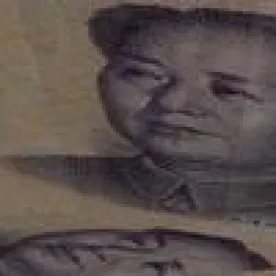China has put into effect an updated “negative list” for foreign investment in the country’s pilot free trade zones (“FTZs”). Officially named the Free Trade Zone (FTZ) Foreign Investment Entry Special Administrative Measures (Negative List) (2017 Version), the FTZ negative list is an important document that lists business sectors in which foreign investment is subject to restrictions (including additional government approvals) and outright prohibitions. This update, published by the State Council on June 16 and effective as of July 10, represents a liberalization of the foreign investment environment in China’s FTZs.
China’s FTZs are seen as a laboratory for potential economic reforms, with successful reforms considered for implementation on a nationwide basis. The negative list approach, in which all investments are considered permitted unless specifically restricted or prohibited according to a negative list, is an example of a reform that has been tested in the FTZs, and is now being rolled out nationally. See our separate post on the release of an updated nationwide Foreign Investment Catalogue (effective July 28) that, for the first time, is explicitly referred to as a negative list for foreign investment.
Items on the FTZ negative list are either “prohibited” or “restricted.” Restricted items are subject to approval by commerce authorities and, if stated, other requirements or restrictions—e.g., Chinese control requirements. Items not listed need only be filed for the record with the commerce authorities (they may still require approvals or licenses from other agencies). In total, the new negative list eliminates 26 line items across 8 sectors and 19 industries, and narrows an additional line item pertaining to performance brokerage companies, making for a total of 27 line item edits. A majority of the eliminations were in the manufacturing sector, covering industries from aeronautical manufacturing to pharmaceutical manufacturing—e.g., airplane manufacturers no longer need Chinese entities to own a controlling equity interest in their companies.
Overall, the updated negative list is a welcome development for foreign businesses, which saw the 2015 version as unnecessarily restrictive across the board. Foreign investors with current or potential interests in China (especially the FTZs) should review the changes to determine whether they present new opportunities. To assist with that review, the chart below re-articulates in English a list of changes (compared to the existing 2015 version) that was provided by the State Council with the new release. Note that these descriptions should be used for reference purposes only. To fully understand the restrictions and prohibitions, and the changes thereto, one must refer to the full text of the updated negative list and, if needed, to the 2015 version. Additionally, note that while this is called a “negative list,” (and in theory should be an all-encompassing list of restrictions), investors may still need to refer to other laws and regulations to confirm that no other rules apply.
|
Main Category |
Field |
Explanation of Deletions in 2017 Version |
|
Mining |
Metal Ore and Non-Metallic Ore Mining |
1. Precious metals (gold, silver, platinum) mining and mine exploration has been removed from the restricted category. |
|
2. Mining and processing of lithium have been removed from the restricted category. |
||
|
Manufacturing |
Aeronautical Manufacturing (See Article 12 for related restrictions.) |
3. The requirement that Chinese parties hold a majority share in foreign-invested enterprises (“FIEs”) involved in the manufacture and design of civilian helicopters weighing three tons or more has been removed. |
|
4. The requirement that the design, manufacturing, and maintenance of aircraft weighing less than 6 tons and with fewer than 9 seats be limited to equity or cooperative joint-ventures (with Chinese parties) has been removed. |
||
|
Shipbuilding (See Article 13 for related restrictions.) |
5. The requirement that Chinese parties must own controlling shares in entities engaging in maritime low- and medium-speed diesel engine manufacturing as well as crankshaft manufacturing has been removed. |
|
|
6. The requirement that maritime engineering equipment (including modules) must be manufactured and repaired by a majority Chinese-held firm has been removed. |
||
|
Automotive Manufacturing |
7. The requirement that enterprises engaged in the manufacture of new, pure electric passenger cars must use their own brand names or own the relevant intellectual property rights or patents has been removed. |
|
|
Rail Transportation and Equipment Manufacturing |
8. The limitation on railway equipment manufacturing (including research and design, design and manufacturing of passenger service facilities and equipment for high-speed railways, design and manufacturing of passenger service facilities and equipment for intercity railways, electric railway equipment and equipment manufacturing, railway passenger car equipment, etc.) to only equity or cooperative joint ventures (with Chinese parties) has been removed. |
|
|
9. The requirement that the proportion of equipment sourced for urban railway transit projects be at least 70% domestically produced has been removed. |
||
|
Communications Equipment Manufacturing (See Article 15 for related restrictions.) |
10. The requirement of controlling Chinese shareholding for the design and manufacturing of civilian satellites and civilian satellite payloads has been removed. |
|
|
Mineral Smelting and Pressure Processing (See Articles 16-18 for related restrictions.) |
11. Smelting of molybdenum, tin, antimony, and other rare metals has been removed from the restricted category. (However, tungsten smelting remains restricted.) |
|
|
Pharmaceutical Manufacturing |
12. The prohibition on investing in the processing of Chinese herbal medicines included in the “Administrative Rules for the Protection of Wild Medicinal Resources” and “List of Rare and Endangered Plants in China” has been removed. |
|
|
Transportation |
Ground Transportation |
13. Highway passenger transport has been removed from the restricted category. |
|
Maritime Transport (See Articles 32-34 for related restrictions.) |
14. Outbound cargo customs brokerages have been removed from the restricted category and are no longer subject to a requirement of equity or cooperative joint ventures (with a Chinese partner or partners). |
|
|
Information and Technology Services |
Internet and Related Services |
15. Internet cafes have been removed from the restricted category. |
|
Finance |
Banking |
16. Engagement by branches of foreign banks in acting as agents to issue or redeem government bonds, or to underwrite government bonds, has been removed from the restricted category. |
|
17. The requirement that foreign banks operating RMB services meet minimum opening time requirements has been removed. |
||
|
18. The requirement that foreign investors investing in financial asset management companies meet certain asset-holding requirements has been removed. |
||
|
Insurance |
19. The requirement that foreign-invested insurance companies obtain approval from Chinese insurance regulatory authorities before engaging in cede-in or cede-out reinsurance activities with their affiliated enterprises has been removed. |
|
|
Leasing and Business Services |
Accounting and Auditing |
20. The requirement that the chief partner of a special general partnership accounting firm (or other high management positions) be of Chinese nationality has been removed. |
|
Statistical Surveys |
21. Text requiring the implementation of a qualification verification system for foreign-related survey institutions and an examination and approval system for foreign-related survey projects has been removed. |
|
|
22. Rating services have been removed from the restricted category. |
||
|
Other Business Services |
23. The requirement that the legal representative of a travel agency carrying out cross-border travel for personal purposes be a Chinese citizen with permanent domestic residency and full civil capacity has been removed. |
|
|
Education |
Education (See Articles 69 and 70 for related restrictions.) |
24. The prohibition on organizing educational institutions in special areas, such as military, police, political, or party schools, has been removed. |
|
Culture, Sports, and Entertainment |
News Publishing, Radio and Television, and Financial Information |
25. The prohibition on the import of cultural products, such as art, digital literature databases, and other published cultural products (unless permitted under the terms of China’s WTO accession) has been removed. |
|
Culture and Entertainment (See Article 91 for the updated language.) |
26. Performance brokerage companies fall under the restricted category and are required to be controlled by a Chinese company or companies. The exception to such requirement is changed from “providing service within a province or provincial-level municipality in which they are registered” to “providing service in provinces with FTZs”. |
|
|
27. Construction and operation of large-scale theme parks has been removed from the restricted category. |
Zhijing Yu contributed to the research and drafting of this article.






 />i
/>i

